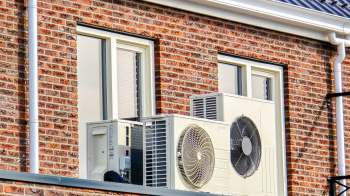Lithuania has entered a state-level state of emergency due to frost, according to LRT.
What's happening?
Between 70% and 100% of fruit and berry crops in some regions of the eastern European country have failed due to unseasonable springtime frost.
May temperatures in Lithuania typically hover over 50 degrees Fahrenheit, but several weeks reached lows close to or below freezing.
Previously, two municipalities, Lazdijai and Vilkaviškis, declared their own states of emergency.
Other areas have also been hit with destructive frost this spring, including South Korea, Poland, and Greece.
Why is late frost important?
Extreme, unpredictable weather is one of the many costs of increased atmospheric pollution. It has had disastrous consequences for farmers worldwide, leading to grocery price increases, and, in worst-case scenarios, food insecurity for whole communities. Frost is one of the threats faced by agriculture, and droughts and floods have been equally destructive.
What's being done about late frost?
While adapting to the economic challenges of destroyed crops is an immediate concern, reducing emissions addresses the root cause of such destructive weather patterns. Adopting a more plant-based diet, making your next car an electric vehicle, and installing a home heat pump are all individual decisions that can help reduce atmospheric pollution.
Lithuania's state-level emergency declaration opens up many avenues to support resources, according to its government.
"Declaring a state-level extreme situation would create better conditions for negotiations with the European Commission about the possibility of compensating for the losses ... and would also allow agricultural entities to benefit from exemptions from sanctions under applicable laws," said Agriculture Minister Ignas Hofmanas, per LRT. "This is particularly important for fulfilling obligations to creditors and banks, as it would provide more flexibility. ... It would also open the way to access the national crisis fund."
|
Should the government be paying us to upgrade our homes?
Click your choice to see results and speak your mind. |
Join our free newsletter for easy tips to save more and waste less, and don't miss this cool list of easy ways to help yourself while helping the planet.










